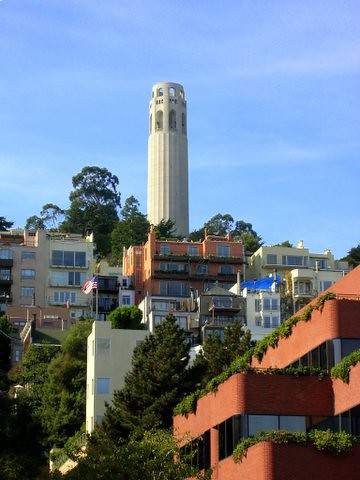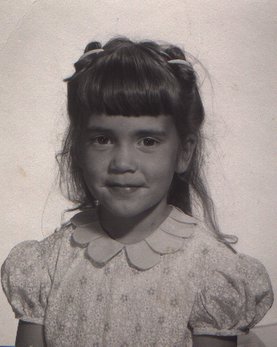Thursday, December 10, 2009
RIP Gene Barry.
RIP Gene Barry. His three TV series were among my favorites growing up.
AP article by Bob Thomas
LOS ANGELES — Gene Barry, who played the well-dressed man of action in the television series "Bat Masterson," "Burke's Law" and "The Name of the Game," has died at age 90 of unknown causes, his son said Thursday.
Fredric James Barry said the actor died Wednesday at a rest home in the Los Angeles neighborhood of Woodland Hills.
Gene Barry essentially played the same character in all three series, which spanned the 1950s to the 1970s. Always fashionably dressed, the tall, handsome actor with the commanding voice dominated his scenes as he bested the bad guys in each show.
[...]
AP article by Bob Thomas
LOS ANGELES — Gene Barry, who played the well-dressed man of action in the television series "Bat Masterson," "Burke's Law" and "The Name of the Game," has died at age 90 of unknown causes, his son said Thursday.
Fredric James Barry said the actor died Wednesday at a rest home in the Los Angeles neighborhood of Woodland Hills.
Gene Barry essentially played the same character in all three series, which spanned the 1950s to the 1970s. Always fashionably dressed, the tall, handsome actor with the commanding voice dominated his scenes as he bested the bad guys in each show.
[...]
Labels: biography, obit, people
Thomas Hoving, 78, dies of cancer.
Thomas Hoving, 78, dies of cancer. Globe and Mail article by Verna Dobnik.
Thomas Hoving's charismatic but controversial leadership of New York's Metropolitan Museum of Art is summed up in his autobiography Making the Mummies Dance.
Dr. Hoving died yesterday of lung cancer at his Manhattan home, his family said.
As the director of the Metropolitan Museum of Art from 1967 to 1977, he turned an institution he said was "dying" into a happening museum with blockbuster exhibits. The treasures from Egyptian King Tutankhamun's tomb was the most popular exhibit in the museum's history, drawing more than one million visitors in New York, plus another 5.6 million at five other American museums.
But Dr. Hoving also raised dust in other ways, paying $5.5-million for a Velazquez masterpiece while selling works by Van Gogh and others to help pay for it. And he had no qualms about letting people sit and snack on the museum's front staircase, which he had enlarged.
Dr. Hoving's philosophy was: anything to make people notice great art.
[...]
Thomas Hoving's charismatic but controversial leadership of New York's Metropolitan Museum of Art is summed up in his autobiography Making the Mummies Dance.
Dr. Hoving died yesterday of lung cancer at his Manhattan home, his family said.
As the director of the Metropolitan Museum of Art from 1967 to 1977, he turned an institution he said was "dying" into a happening museum with blockbuster exhibits. The treasures from Egyptian King Tutankhamun's tomb was the most popular exhibit in the museum's history, drawing more than one million visitors in New York, plus another 5.6 million at five other American museums.
But Dr. Hoving also raised dust in other ways, paying $5.5-million for a Velazquez masterpiece while selling works by Van Gogh and others to help pay for it. And he had no qualms about letting people sit and snack on the museum's front staircase, which he had enlarged.
Dr. Hoving's philosophy was: anything to make people notice great art.
[...]
Labels: art, biography, history, obit, people
Monday, October 27, 2008
RIP Tony Hillerman
Tony Hillerman has died at age 83.
My favorite memory of him was his appearance as guest at the first fundraiser dinner for (what now is known as) the Foundation for Monterey County Free Libraries back in the early nineties. The Foundation had originally asked Robert Campbell to be guest speaker but Campbell answered (hashhish remembering here) something to the effect that Campbell really wasn't so hot with the public speaking thing. If he had been good at it, Campbell said, he probably would've chosen a vocation other than writing. But he knew this guy. ...
Hillerman signed one of my hardback first editions before the dinner and kept the audience laughing during dinner with his dry wit and self deprecating stories of bloopers he'd made and his life as a writer. Hillerman all-in-all proved to be a generous, charming, raconteur sort of a guy.
Hillerman did a lot for the mystery-writing community and writers in general, a lot for libraries and readers. He earned the Grand Master Award from the Mystery Writers of America. Talking mysteries : a conversation with Tony Hillerman and Seldom Disappointed: A Memoir are excellent introductions to Hillerman the writer and his writing.
Hillerman's writing evoked the Southwest. His mysteries were appreciated by the Navajo nation because of his depictions of and respect for the native culture. The Navajo Tribal Council honored him with its Special Friend of the Dineh award in 1987.
He was one of a kind.
RIP.
My favorite memory of him was his appearance as guest at the first fundraiser dinner for (what now is known as) the Foundation for Monterey County Free Libraries back in the early nineties. The Foundation had originally asked Robert Campbell to be guest speaker but Campbell answered (hashhish remembering here) something to the effect that Campbell really wasn't so hot with the public speaking thing. If he had been good at it, Campbell said, he probably would've chosen a vocation other than writing. But he knew this guy. ...
Hillerman signed one of my hardback first editions before the dinner and kept the audience laughing during dinner with his dry wit and self deprecating stories of bloopers he'd made and his life as a writer. Hillerman all-in-all proved to be a generous, charming, raconteur sort of a guy.
Hillerman did a lot for the mystery-writing community and writers in general, a lot for libraries and readers. He earned the Grand Master Award from the Mystery Writers of America. Talking mysteries : a conversation with Tony Hillerman and Seldom Disappointed: A Memoir are excellent introductions to Hillerman the writer and his writing.
Hillerman's writing evoked the Southwest. His mysteries were appreciated by the Navajo nation because of his depictions of and respect for the native culture. The Navajo Tribal Council honored him with its Special Friend of the Dineh award in 1987.
He was one of a kind.
RIP.
Labels: biography, books, damn, mystery, people
Monday, January 21, 2008
Letter from Birmingham Jail
In honor of Martin Luther King, Jr. and his Day, I reprise a view from the Hill.
Read the post and the Letter from Birmingham Jail. (the "letter" on the blog post is 404).
Read the post and the Letter from Birmingham Jail. (the "letter" on the blog post is 404).
Labels: biography, history, people, politics
Wednesday, June 13, 2007
Ray Bradbury: Fahrenheit 451 Misinterpreted - Amy E. Boyle Johnston
Ray Bradbury: Fahrenheit 451 Misinterpreted - Amy E. Boyle Johnston, LA Weekly.
[...]
Bradbury, a man living in the creative and industrial center of reality TV and one-hour dramas, says it is, in fact, a story about how television destroys interest in reading literature.
"Television gives you the dates of Napoleon, but not who he was," Bradbury says, summarizing TV's content with a single word that he spits out as an epithet: "factoids." He says this while sitting in a room dominated by a gigantic flat-panel television broadcasting the Fox News Channel, muted, factoids crawling across the bottom of the screen.
His fear in 1953 that television would kill books has, he says, been partially confirmed by television's effect on substance in the news. The front page of that day's L.A. Times reported on the weekend box-office receipts for the third in the Spider-Man series of movies, seeming to prove his point.
"Useless," Bradbury says. "They stuff you with so much useless information, you feel full." He bristles when others tell him what his stories mean, and once walked out of a class at UCLA where students insisted his book was about government censorship. He's now bucking the widespread conventional wisdom with a video clip on his Web site (http://www.raybradbury.com/at_home_clips.html), titled "Bradbury on censorship/television."
As early as 1951, Bradbury presaged his fears about TV, in a letter about the dangers of radio, written to fantasy and science-fiction writer Richard Matheson. Bradbury wrote that "Radio has contributed to our 'growing lack of attention.'... This sort of hopscotching existence makes it almost impossible for people, myself included, to sit down and get into a novel again. We have become a short story reading people, or, worse than that, a QUICK reading people."
[...]
"I was worried about people being turned into morons by TV," Bradbury says in the censorship/television video clip. The collection of clips includes his explanation of how he wrote Fahrenheit 451 in nine days in a clip titled (oddly enough) FAHRENHEIT 451.
The Bradbury site also includes a wonderful obit for Marguerite Susan McClure (Maggie) Bradbury, who died in 2003.
[...]
Bradbury, a man living in the creative and industrial center of reality TV and one-hour dramas, says it is, in fact, a story about how television destroys interest in reading literature.
"Television gives you the dates of Napoleon, but not who he was," Bradbury says, summarizing TV's content with a single word that he spits out as an epithet: "factoids." He says this while sitting in a room dominated by a gigantic flat-panel television broadcasting the Fox News Channel, muted, factoids crawling across the bottom of the screen.
His fear in 1953 that television would kill books has, he says, been partially confirmed by television's effect on substance in the news. The front page of that day's L.A. Times reported on the weekend box-office receipts for the third in the Spider-Man series of movies, seeming to prove his point.
"Useless," Bradbury says. "They stuff you with so much useless information, you feel full." He bristles when others tell him what his stories mean, and once walked out of a class at UCLA where students insisted his book was about government censorship. He's now bucking the widespread conventional wisdom with a video clip on his Web site (http://www.raybradbury.com/at_home_clips.html), titled "Bradbury on censorship/television."
As early as 1951, Bradbury presaged his fears about TV, in a letter about the dangers of radio, written to fantasy and science-fiction writer Richard Matheson. Bradbury wrote that "Radio has contributed to our 'growing lack of attention.'... This sort of hopscotching existence makes it almost impossible for people, myself included, to sit down and get into a novel again. We have become a short story reading people, or, worse than that, a QUICK reading people."
[...]
"I was worried about people being turned into morons by TV," Bradbury says in the censorship/television video clip. The collection of clips includes his explanation of how he wrote Fahrenheit 451 in nine days in a clip titled (oddly enough) FAHRENHEIT 451.
The Bradbury site also includes a wonderful obit for Marguerite Susan McClure (Maggie) Bradbury, who died in 2003.
Labels: biography, books, history, obit, video
: views from the Hill
Bertold Brecht:
Everything changes. You can make
A fresh start with your final breath.
But what has happened has happened. And the water
You once poured into the wine cannot be
Drained off again.
Everything changes. You can make
A fresh start with your final breath.
But what has happened has happened. And the water
You once poured into the wine cannot be
Drained off again.


